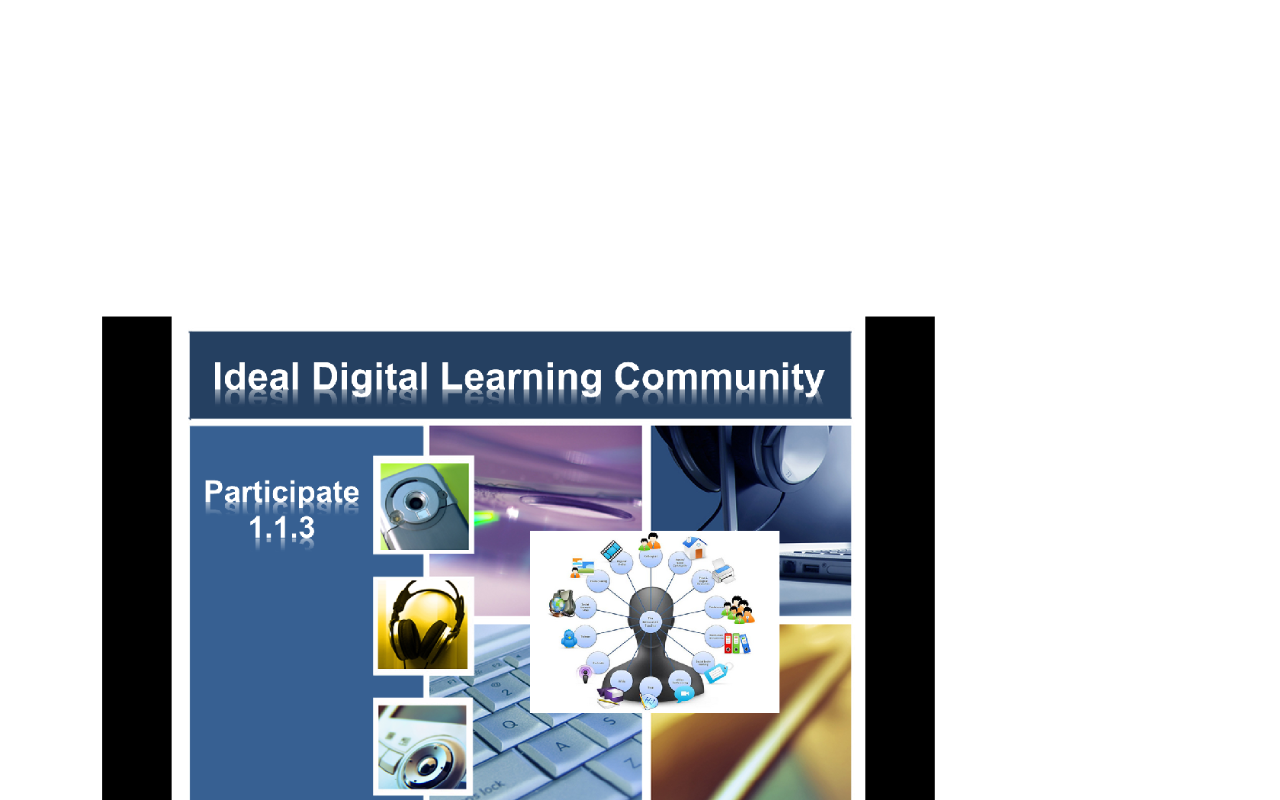Participate 4.1.1- Supporting Digital Rights and Responsibilities
Participate 4.1.1 Digital Rights and Responsibilities
1. How can a DLC ensure that citizens within the community have access to an environment where an AUP protects members as well as the community itself, where individuals uphold laws, and a cooperative/collective venture provides robust, safe, and ethical resources and opportunities for learning?
- DLCs can develop and implement AUPs for their teachers, staff and students. These policies can ensure protection against liability that might occur by allowing students, teachers and staff access to the wide open environment of information on the Internet.
- A cooperative/collective venture would include gathering local support from students, teachers and staff as the DLC develops robust, safe and ethical resources and opportunities for learning.
- To protect all stakeholders, the AUP must clearly describe an acceptable use of technology which includes an outline of responsibilities of all stakeholders.
- Once the AUP is developed, how to present the acceptable use policy and how to enforce it must be decided upon.
- Training must then follow for all stakeholders which would include the details in the AUP in addition to stressing the consequences involving legal and ethical violations.
2. What is the best way to establish and maintain a flourishing DLC where citizens understand, observe, and are inclined to willingly support and ultimately benefit from Digital Rights and Responsibilities?
Specific expectations must be delivered to all citizens participating in a DLC. These expectations must include strict adherence and consequences for:
1) Cyber-bullying
2) Flaming
3) Accessing and distributing inappropriate material
4) Unethical actions such as “copying and pasting” or plagiarizing.
5) Hacking or using false identification/impersonation
With comprehensive AUPs, and with the wealth of resources of the Internet at our fingertips, all stakeholders can benefit from the Digital Rights and Responsibilities. The opportunities for learning and collaboration with a world-wide audience in a safe, secure environment will definitely benefit learning and instruction.
Here is the link to Cobb County’s Internet Safety Policy:
C:\Users\cvm12369\Desktop\Internet Safety Cobb County.pdf
Also, the Cobb County School District provides many resources for parents and students regarding cyber-safety: https://www.cobbk12.org/preventionintervention/internet_safety.htm
3) Reflection:
Students should receive training which includes information about computer ethics and they must pass a quiz regarding the appropriate use of computer networks. It is very important for students to know that they must behave in a responsible way. It is important that teachers and schools do more to instruct students in right and wrong behaviors online. The Internet is a powerful tool and teachers have a responsibility to teach the students how to use it beneficially. Students must learn the responsibility to use legal and ethical behavior when using information gathered from the Internet and understand the consequences of misuse. Lessons on Online Citizenship should be taught as early as kindergarten. Both teachers and schools have a responsibility to provide more information to the students about ethics.
There are a variety of legal issues when using technology in the schools. Teachers would be aware of the fair use of electronic resources and the importance of software copyright compliance. Copying material with the availability of smart phones and the Internet continue to be widespread and a serious legal issue. In addition, educators should teach students about the problems related to software piracy, the acceptable use polies when using the Internet, and the students’ responsibilities of using electronic resources. Many students are not aware of the seriousness of downloading software from the internet without permission due to feel they are exempt from copyright laws. Teachers must focus on the social, ethical and legal use of technology. Teachers without experience in these critical areas of technology should learn all that they can before proceeding with technology implementation. With the expansion of DLCs, it is extremely important that educators instruct students how to use the information they collect from the Internet in an ethical and socially responsible way.
Participate

Navigate

Communicate


Create



